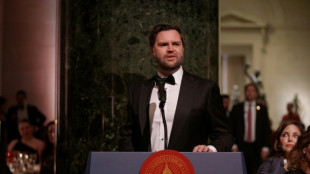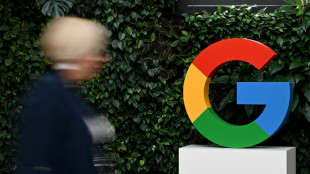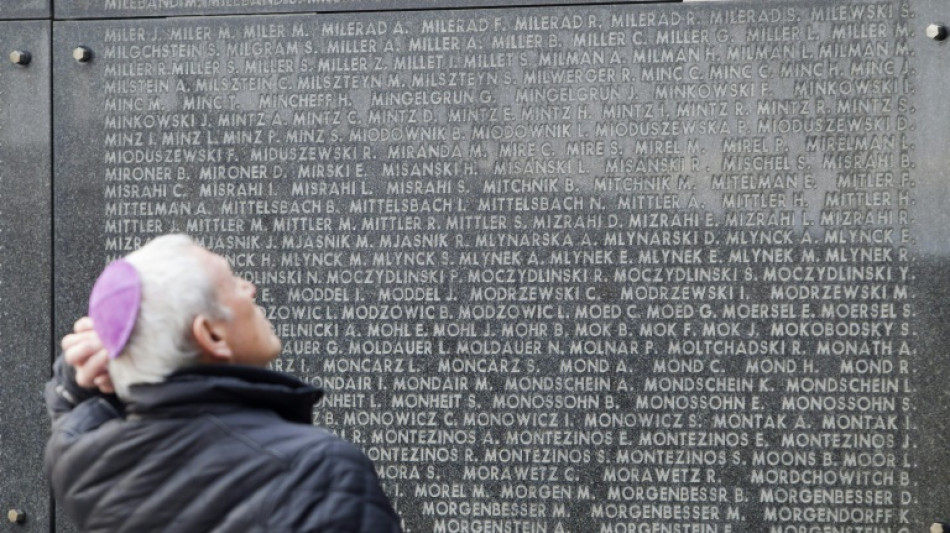
-
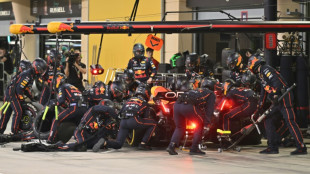 Troubled Red Bull search for path back to fast lane
Troubled Red Bull search for path back to fast lane
-
China's forecast-beating growth belies storm clouds ahead: analysts
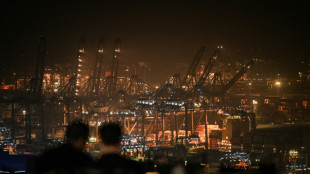
-
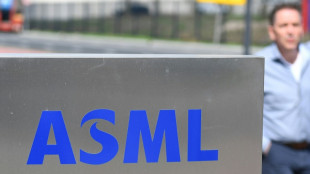 ASML CEO sees growing economic 'uncertainty' from tariffs
ASML CEO sees growing economic 'uncertainty' from tariffs
-
Heineken beer sales dip, tariffs add to uncertainty
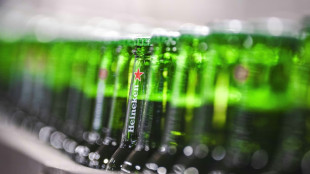
-
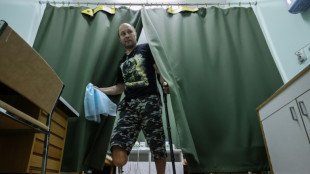 Rehab centre for Russian veterans from Ukraine fills up
Rehab centre for Russian veterans from Ukraine fills up
-
Dutch flower industry grasps thorny pesticide issue
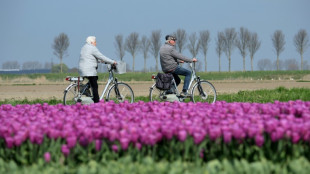
-
 Solar boom counters power shortages in Niger
Solar boom counters power shortages in Niger
-
Malnourished children in Afghanistan at 'high risk of dying' without US aid
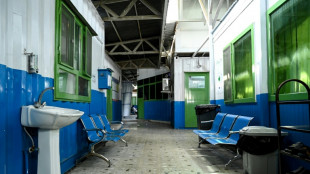
-
 Skating comeback queen Liu says she can get even better for Olympics
Skating comeback queen Liu says she can get even better for Olympics
-
'Let's rock': world music icon Youssou N'Dour back on the road
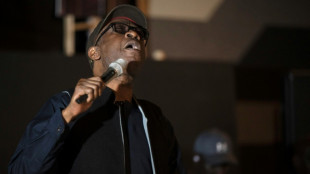
-
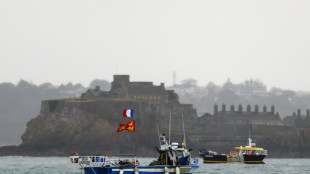 Mackerel and missiles: EU-UK defence deal snags on fish
Mackerel and missiles: EU-UK defence deal snags on fish
-
Istanbul's Hagia Sophia prepares for next big quake
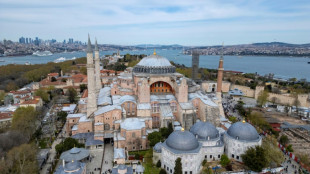
-
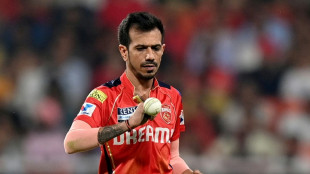 'Magician' Chahal casts spell with IPL heroics
'Magician' Chahal casts spell with IPL heroics
-
WHO countries strike landmark agreement on tackling future pandemics
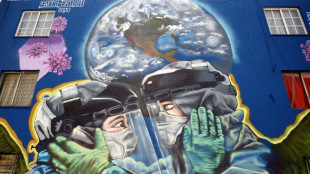
-
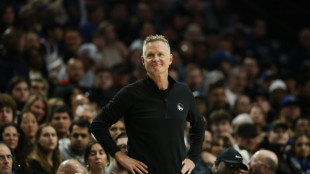 Kerr salutes Harvard defiance over Trump after Warriors win
Kerr salutes Harvard defiance over Trump after Warriors win
-
Canada party leaders hold high-stakes debate two weeks from vote
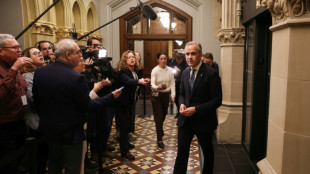
-
 As war grinds on, Ukraine's seniors suffer
As war grinds on, Ukraine's seniors suffer
-
ASML CEO sees 'increased macro uncertainty' from tariffs
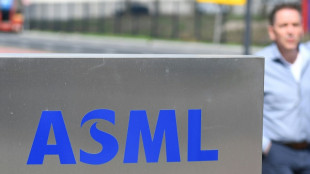
-
 Pope leaves faithful guessing over Easter appearances
Pope leaves faithful guessing over Easter appearances
-
Butler, 'Batman' Curry shine as Warriors down Grizzlies to reach playoffs
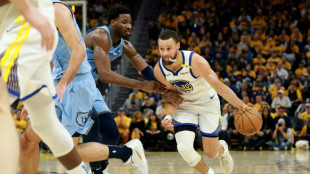
-
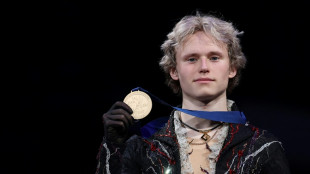 Skating 'Quad God' Malinin ready for Olympic favourite tag
Skating 'Quad God' Malinin ready for Olympic favourite tag
-
Toppmoeller has ascendant Frankfurt challenging their limits
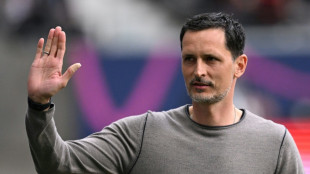
-
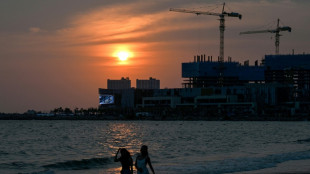 Cambodia's Chinese casino city bets big on Beijing
Cambodia's Chinese casino city bets big on Beijing
-
Vespa love affair: Indonesians turn vintage scooters electric
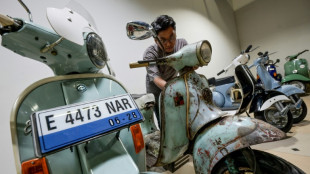
-
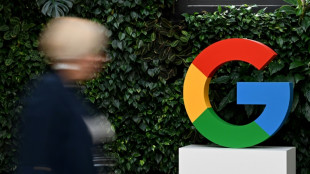 Europe seeks to break its US tech addiction
Europe seeks to break its US tech addiction
-
Long-abandoned Welsh mine revived as gold prices soar
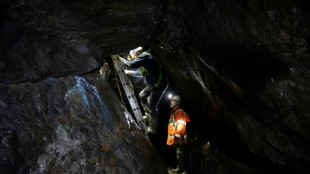
-
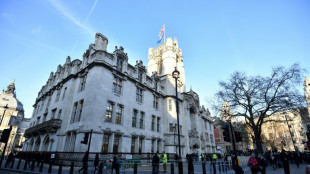 UK's top court to rule on how to define a 'woman'
UK's top court to rule on how to define a 'woman'
-
WHO countries reach landmark agreement on tackling future pandemics
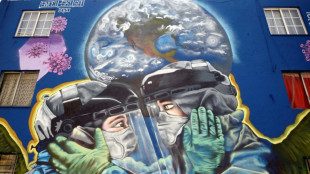
-
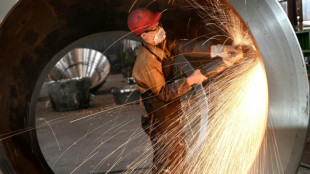 Stocks struggle again as Nvidia chip curb warning pops calm
Stocks struggle again as Nvidia chip curb warning pops calm
-
China's economy beats forecasts ahead of Trump's 'Liberation Day'
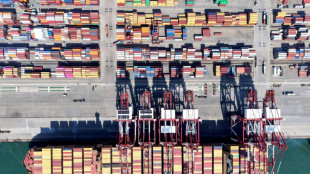
-
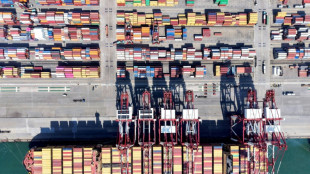 China's economy beat forecasts in first quarter ahead of Trump's 'Liberation Day'
China's economy beat forecasts in first quarter ahead of Trump's 'Liberation Day'
-
Trump orders critical minerals probe that may bring new tariffs
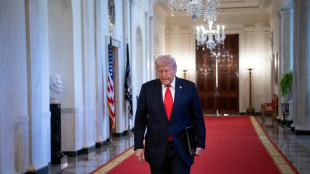
-
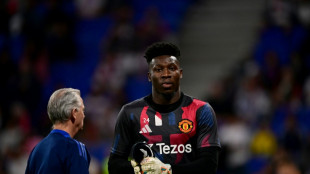 Onana faces date with destiny as Man Utd chase Lyon win
Onana faces date with destiny as Man Utd chase Lyon win
-
Lessons in horror with Cambodia's Khmer Rouge tribunal
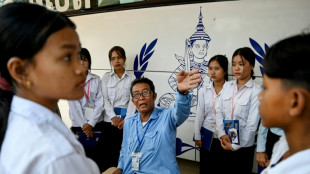
-
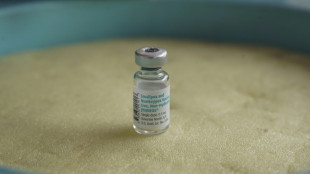 Pandemic agreement: key points
Pandemic agreement: key points
-
Paramilitaries declare rival government as Sudan war hits two-year mark
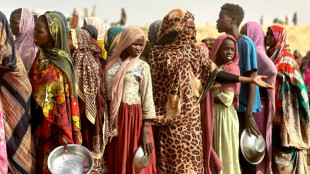
-
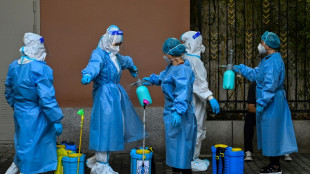 Landmark agreement reached at WHO over tackling future pandemics
Landmark agreement reached at WHO over tackling future pandemics
-
'La bolita,' Cuban lottery offering hope in tough times
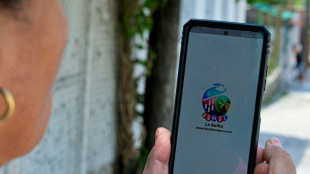
-
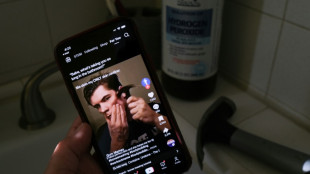 'Toxic beauty': Rise of 'looksmaxxing' influencers
'Toxic beauty': Rise of 'looksmaxxing' influencers
-
Facebook added 'value' to Instagram, Zuckerberg tells antitrust trial
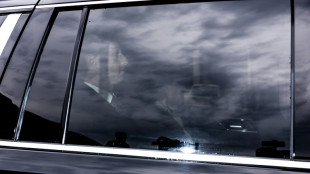
-
 Trump signs order aimed at lowering drug prices
Trump signs order aimed at lowering drug prices
-
Paramilitaries declare rival government as Sudan war enters third year
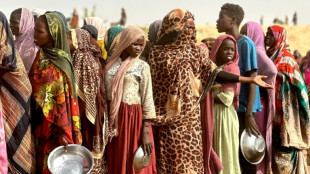
-
 Nvidia expects $5.5 bn hit as US targets chips sent to China
Nvidia expects $5.5 bn hit as US targets chips sent to China
-
Emery targets 'next step' for Aston Villa after Champions League heroics
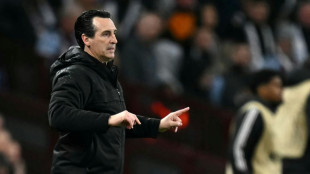
-
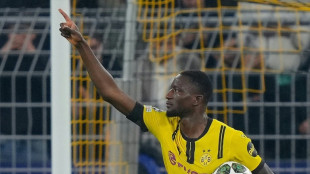 'Gap too big' for Dortmund after first leg, says Guirassy
'Gap too big' for Dortmund after first leg, says Guirassy
-
Maradona's daughter says doctors could have prevented his death
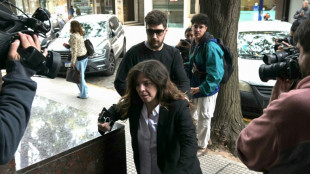
-
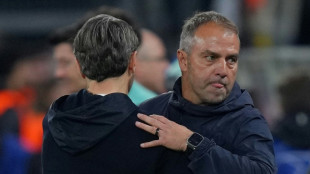 Barcelona 'justified' semi-final spot despite Dortmund loss, says Flick
Barcelona 'justified' semi-final spot despite Dortmund loss, says Flick
-
'We thought the tie was over': Dembele admits PSG switched off against Villa

-
 Wine consumption falls heavily into the red
Wine consumption falls heavily into the red
-
Barca through to Champions League semis despite Guirassy hat-trick
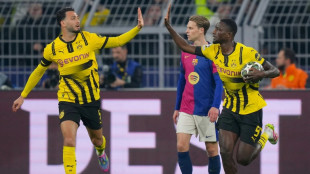

Holocaust remembrance and Gaza collide in Brussels schools
A few months ago in Brussels, Arthur Langerman was telling high school pupils about losing family members in the Holocaust and escaping a Nazi raid himself, when he was cut short by two Muslim teens wanting to talk about Gaza.
"It's a genocide, and it's been happening for 75 years," interjected one of the young women, triggering a heated back-and-forth about the Israeli-Palestinian conflict.
For their history teacher, Olivier Blairon, the scene sums up how hard it is to teach the genocide of six million Jews during World War II since the Hamas attacks of October 7, 2023 triggered Israel's onslaught on the Gaza Strip.
Blairon works in a large high school in the Brussels district of Koekelberg, home to a large community of Moroccan descent, where he said many students "identify with the violence suffered by Gazans".
"I have heard anti-Semitic remarks," Blairon said. "Some of my students mix things up" by equating all Jews with Israel, he said. Some are also deliberately "provocative".
"So I take the time to unpick their preconceptions," he said.
Blairon's students made up the lion's share of youths present at the encounter with the 82-year-old Langerman, which AFP attended at the Belgian capital's secular Jewish community centre, the CCLJ.
"The October 7 attacks highlighted how hard it has become to talk about the Holocaust," said the centre's co-director, Nicolas Zomersztajn.
"It's more complicated in the current context," said Zomersztajn, who laments how the Jewish community is constantly being asked to take a stance on the war in Gaza.
At the Brussels Jewish Museum, where four people were killed in a jihadist attack in 2014, a handful of school outings were cancelled in the immediate aftermath of October 7.
Some students report sick on the day of a visit or find a way to avoid going on to see a nearby synagogue, said Frieda Van Camp, who works in the museum's education department.
- Hate messages -
Anti-Semitism has been surging worldwide on a scale unseen in recent memory since the war in Gaza was sparked by the Hamas attack that killed 1,218 people in Israel. Since then more than 50,800 people, mostly civilians, have died in the Palestinian territory.
The Belgian anti-discrimination body Unia recorded 91 anti-Semitic incidents between October 7 and December 7, 2023 -- compared to 57 for the whole of the previous year.
Most involved online hate messages directed at the Jewish community, which numbers around 30,000.
A May 2024 poll found that around one in seven Belgians felt "antipathy" towards Jews.
Anti-Semitic prejudice was disproportionate among people on the far left, far right and in Muslim communities, the poll of 1,000 adults found.
When it comes to talking about Jews and the Holocaust in Brussels schools, "you can feel people tense up", said Ina Van Looy, who is in charge of a project combating discrimination at the CCLJ.
"For some teachers it has become difficult to take their students to any kind of Jewish site," she said.
"Some teachers are completely overwhelmed by the way students get their information and how they talk about the conflict" between Israel and the Palestinians, she said. "Many of them feel helpless."
During the talk with Langerman, it was Van Looy who stepped in to calm things down after the discussion turned to Gaza.
Afterwards, it was agreed that she would visit the Koekelberg school to talk about the notion of genocide.
"These young people are hurt, they are angry. We have to listen to them," she told AFP.
- Not being 'silenced' -
In Belgium, all students are formally taught about the Nazi's systematic slaughter of Europe's Jews by the end of high school.
Schools organise trips from primary upwards to Holocaust memorial sites, such as Fort Breendonk near Antwerp or the Kazerne Dossin transit camp in Mechelen, where the country's Jews were rounded up for deportation.
And pupils in Brussels regularly take part in inaugurating new "stolpersteine" or "stumbling stones" on the city's sidewalks, in memory of Jews murdered in the Nazi death camps.
Between 1942 and 1944, some 25,000 Jews were deported from Belgium to the Auschwitz-Birkenau camp in German-occupied Poland. Fewer than 2,000 survived.
But in the past few months, two primary school headteachers from Anderlecht, another Brussels district with a large Muslim population, decided their students would not take part in unveiling new stones.
They thought "it was not fair to impose that on students and parents" at the height of the Gaza conflict, said Bella Swiatlowski, of the Belgian association for the memory of the Holocaust.
Neither headteacher wanted to discuss the issue when contacted by AFP.
Finally the mayor of Anderlecht stepped in and found a way for the two schools to be represented at the inauguration ceremony in January.
That same month, dozens of primary and secondary schoolchildren took part in another "stumbling stone" inauguration marking 80 years since the liberation of Auschwitz, laying a white rose on the ground in a solemn and moving ceremony.
Faouzia Hariche, the Algerian-born deputy mayor of Brussels in charge of public education, paid tribute to the "courage" of teachers who refuse to "be silenced" on teaching the Holocaust.
"A small minority of teachers are fearful of tackling the subject," she said. "We need to give them the tools to do so."
C.Stoecklin--VB

